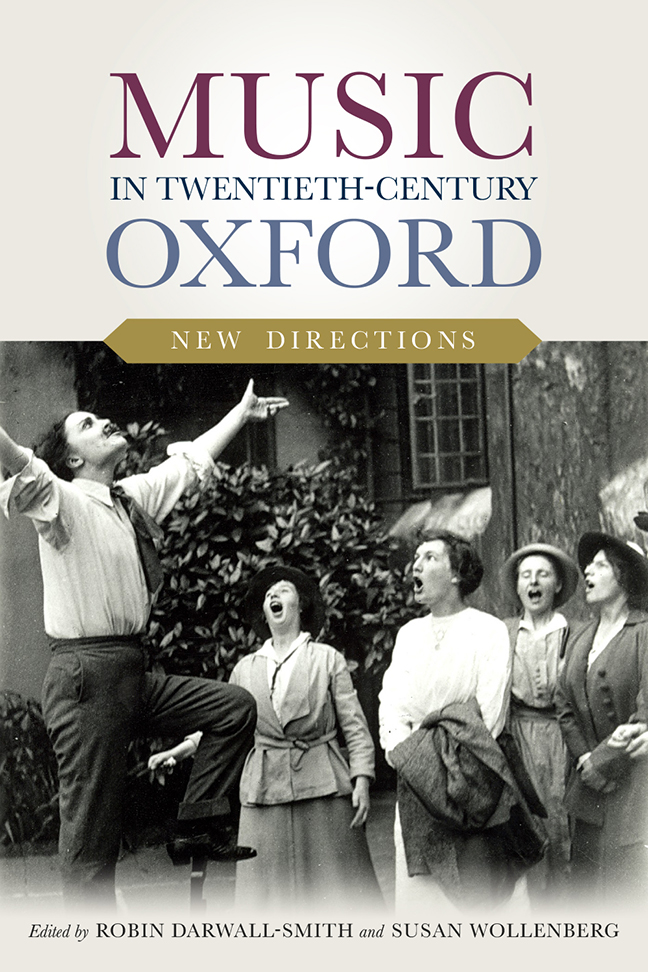11 - Oxford Composers
Published online by Cambridge University Press: 09 January 2024
Summary
What is an ‘Oxford composer’? A working definition might be ‘a composer of some distinction associated for much of his or her career with the city or the university’. There are, however, other possible definitions, and our working definition might exclude some composers whose association, though brief, was decisive. Another familiar, but for our purposes less useful, definition is ‘a composer published by Oxford University Press’. As it happens, the Music Department of the Press operated from London, not Oxford, for much of its earlier life, but in any case it has never limited its scope to composers associated with Oxford. I have adopted the working definition above, but with a certain amount of flexibility. Finally, while some composers still living are mentioned, I have avoided all critical comment on their music.
Composition within the orbit of the twentieth-century University, like most of its activities, falls neatly into two almost equal halves divided by World War II, or rather by the end of that war in 1945. Before that date, the study of music was very largely based on composition. The reasons for this are historical. Oxford, with Cambridge, started to offer degrees in Music (B.Mus. and D.Mus.) at the end of the fifteenth century, and apart from a few very early cases they were awarded exclusively for composition. Typ-ically, the requirement at Oxford was for a Mass and an antiphon (a kind of motet) in five parts, together with evidence of the study of music for a period of time, usually ten years for a doctorate. While we know the names of composers who received the degree of Doctor or Bachelor of Music (or at any rate who were given permission to ‘supplicate’ for the degree) we do not know how their submissions were evaluated. It seems, in fact, that the proof of the pudding was in the eating: if the music was performable, it would pass muster.
The requirement for a composition (no longer, it need hardly be said, for a Mass and an antiphon), together with a period of study, was enshrined in the Laudian statutes of 1636, a successful submission entitling the holder to ‘lecture on any book of Boethius's De Musica’. The composition had to be performed in the Sheldonian Theatre, usually as part of the annual ‘Act’, but there is no mention of any examiners.
- Type
- Chapter
- Information
- Music in Twentieth-Century OxfordNew Directions, pp. 198 - 212Publisher: Boydell & BrewerPrint publication year: 2023



